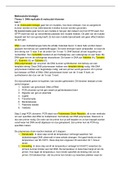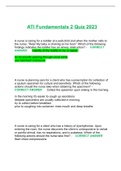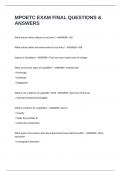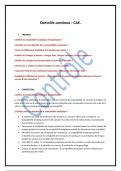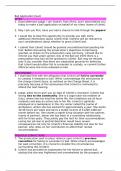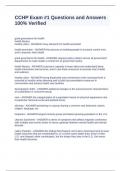1
Lecture 1 - welcome and introduction
Science and the way of knowing
- there are a wide range of ontologies and epistemologies in the way of knowing
- Science as the analysis of existing facts by realists, preceded and informed by
the wish dreams of utopians.
- Epistemic, technical, normative and esthetics ways of knowing
Detached Engaged
Impersonal Epistemic Technical
Value perspectival Aesthetic Normative
Epistemic knowledge is seen as detached and impersonal because it aims for objectivity and
universality, removing personal biases. However, critics argue this approach often re ects Western
biases, ignoring the context and perspectives of marginalized groups.
Technical knowledge is focused on practical application and solving problems ef ciently.
Critics argue it often prioritizes functionality over social or ethical considerations, re ecting
dominant power structures.
Aesthetic knowledge values beauty, creativity, and cultural expression. Critics suggest it can
re ect dominant cultural biases, marginalizing non-Western or indigenous artistic traditions.
Normative knowledge deals with values, ethics, and what "ought" to be. Critics point out it often
imposes dominant moral frameworks, disregarding diverse cultural and ethical perspectives.
International relations - de nitions
1. Serious and critical analysis of real international problems, preceded by
aspiration
2. The study of cross boundary encounters with di erence, the subversion and
maintenance of those boundaries and the transaction within and across those
boundaries
3. A highly interdisciplinary, traditionally very Eurocentric and exclusionary, eld of
study that examines the political power relations that characters the
contemporary world
fl fi ff fifl fi
, 2
Theory International relations and otherwise
The theory of international relations (IR) is a framework to understand how
countries interact with each other. It explains global politics, power dynamics, and
how states cooperate or con ict. Key theories include:
1. Realism - Focuses on power and self-interest; states compete for survival.
2. Liberalism - Highlights cooperation, institutions, and mutual bene ts.
3. Constructivism - Emphasizes ideas, culture, and how shared beliefs shape
international actions.
These theories help explain why nations behave the way they do on the global
stage.
- for utopians theory is a norm to which political practice should conform. For
realists, it is a codi cation of political practice.
- Non optional simpli cation devices that allows you to decide which historical or
contemporary facts matter more then others, when trying to understand the
world
- Subject to constant revision and challenge
Chapter 1 - Introduction
1. Theories of World Politics: (There will be more in this in the next lectures, this
is just an overview)
- Realism views world politics as a struggle for power among states,
emphasizing that human nature is sel sh and that military force is crucial .
- Liberal internationalism believes in the potential for human improvement and
cooperation among various actors, including states, multinational corporations,
and NGOs .
- Marxism critiques globalization as a continuation of capitalist exploitation, arguing
that it primarily bene ts the wealthy and reinforces global inequalities .
- Constructivism emphasizes the role of social norms and identities in shaping
world politics, suggesting that globalization can be molded by human agency .
fififi fl fi fi
, 3
- Poststructuralism challenges the claims of other theories, arguing that concepts
of globalization are products of power relations and discourse .
- Feminist theories analyze how gender affects and is affected by world politics,
highlighting the exclusion of women and the impact of globalization on gendered
power dynamics .
- Liberal feminists tend to view globalization positively, seeing it as a means to
incorporate more women into the liberal capitalist political and economic
system, which has bene ted many women in the West .
- In contrast, other feminists are more skeptical, pointing out that neoliberalism
and economic globalization exacerbate the global wealth gap,
disproportionately affecting women of color .
2. Globalization as a Concept:
- The chapter raises critical questions about whether globalization represents a
new phase in world politics or merely a continuation of existing dynamics,
particularly in the context of neoliberal capitalism.
- Marxists argue that globalization is simply the latest stage of capitalism,
reinforcing existing inequalities rather than creating a qualitatively new political
landscape .
3. Personal and Political Implications:
- The chapter concludes by suggesting that individual positions—such as
economic status, ethnicity, and gender—signi cantly in uence how globalization
is perceived and experienced, making the study of world politics deeply
personal .
4. Impact of Globalization:
- states are less closed and more interdependent due to global capitalism
- The rise of electronic communications has revolutionized how we engage with
global events, allowing for instant communication and altering our perceptions
of social groups.
fi fi fl
, 4
- Critics argue that globalization may simply represent the latest phase of
neoliberal capitalism, reinforcing existing inequalities rather than creating a new
political landscape .
- There is a growing concern that globalization primarily bene ts wealthier nations
while marginalizing poorer ones, leading to a more divided world .
- Feminist perspectives on globalization highlight that its effects on gender power
dynamics are complex, with some viewing it as a means to empower women,
while others point out its negative impacts on women of color .
- The emergence of a global culture, in uenced heavily by Western media, raises
questions about the dominance of Western values and the marginalization of
non-Western perspectives .
- Globalization has also facilitated the rise of transnational social movements,
indicating a shift in allegiance from traditional nation-states to sub-state and
international bodies .
- However, the accountability of powerful global actors, such as multinational
corporations, remains a signi cant concern, as they often operate without
democratic oversight .
5. Meta-Theoretical Questions:
- The chapter concludes by posing critical questions about the nature of
globalization, such as whether it is a positive or negative development, and
whether it makes the state obsolete or enhances democratic processes .
Explanatory vs. Constitutive Theories:
Explanatory: View the world as external to our theories. Aim to uncover regularities
in human behavior, similar to natural sciences
Constitutive: Argue that our theories help construct the world, suggest that our
concepts shape our understanding of reality .
Foundationalism vs. Anti-Foundationalism:
Foundationalists believe that truth claims can be objectively judged
fi fl fi
Lecture 1 - welcome and introduction
Science and the way of knowing
- there are a wide range of ontologies and epistemologies in the way of knowing
- Science as the analysis of existing facts by realists, preceded and informed by
the wish dreams of utopians.
- Epistemic, technical, normative and esthetics ways of knowing
Detached Engaged
Impersonal Epistemic Technical
Value perspectival Aesthetic Normative
Epistemic knowledge is seen as detached and impersonal because it aims for objectivity and
universality, removing personal biases. However, critics argue this approach often re ects Western
biases, ignoring the context and perspectives of marginalized groups.
Technical knowledge is focused on practical application and solving problems ef ciently.
Critics argue it often prioritizes functionality over social or ethical considerations, re ecting
dominant power structures.
Aesthetic knowledge values beauty, creativity, and cultural expression. Critics suggest it can
re ect dominant cultural biases, marginalizing non-Western or indigenous artistic traditions.
Normative knowledge deals with values, ethics, and what "ought" to be. Critics point out it often
imposes dominant moral frameworks, disregarding diverse cultural and ethical perspectives.
International relations - de nitions
1. Serious and critical analysis of real international problems, preceded by
aspiration
2. The study of cross boundary encounters with di erence, the subversion and
maintenance of those boundaries and the transaction within and across those
boundaries
3. A highly interdisciplinary, traditionally very Eurocentric and exclusionary, eld of
study that examines the political power relations that characters the
contemporary world
fl fi ff fifl fi
, 2
Theory International relations and otherwise
The theory of international relations (IR) is a framework to understand how
countries interact with each other. It explains global politics, power dynamics, and
how states cooperate or con ict. Key theories include:
1. Realism - Focuses on power and self-interest; states compete for survival.
2. Liberalism - Highlights cooperation, institutions, and mutual bene ts.
3. Constructivism - Emphasizes ideas, culture, and how shared beliefs shape
international actions.
These theories help explain why nations behave the way they do on the global
stage.
- for utopians theory is a norm to which political practice should conform. For
realists, it is a codi cation of political practice.
- Non optional simpli cation devices that allows you to decide which historical or
contemporary facts matter more then others, when trying to understand the
world
- Subject to constant revision and challenge
Chapter 1 - Introduction
1. Theories of World Politics: (There will be more in this in the next lectures, this
is just an overview)
- Realism views world politics as a struggle for power among states,
emphasizing that human nature is sel sh and that military force is crucial .
- Liberal internationalism believes in the potential for human improvement and
cooperation among various actors, including states, multinational corporations,
and NGOs .
- Marxism critiques globalization as a continuation of capitalist exploitation, arguing
that it primarily bene ts the wealthy and reinforces global inequalities .
- Constructivism emphasizes the role of social norms and identities in shaping
world politics, suggesting that globalization can be molded by human agency .
fififi fl fi fi
, 3
- Poststructuralism challenges the claims of other theories, arguing that concepts
of globalization are products of power relations and discourse .
- Feminist theories analyze how gender affects and is affected by world politics,
highlighting the exclusion of women and the impact of globalization on gendered
power dynamics .
- Liberal feminists tend to view globalization positively, seeing it as a means to
incorporate more women into the liberal capitalist political and economic
system, which has bene ted many women in the West .
- In contrast, other feminists are more skeptical, pointing out that neoliberalism
and economic globalization exacerbate the global wealth gap,
disproportionately affecting women of color .
2. Globalization as a Concept:
- The chapter raises critical questions about whether globalization represents a
new phase in world politics or merely a continuation of existing dynamics,
particularly in the context of neoliberal capitalism.
- Marxists argue that globalization is simply the latest stage of capitalism,
reinforcing existing inequalities rather than creating a qualitatively new political
landscape .
3. Personal and Political Implications:
- The chapter concludes by suggesting that individual positions—such as
economic status, ethnicity, and gender—signi cantly in uence how globalization
is perceived and experienced, making the study of world politics deeply
personal .
4. Impact of Globalization:
- states are less closed and more interdependent due to global capitalism
- The rise of electronic communications has revolutionized how we engage with
global events, allowing for instant communication and altering our perceptions
of social groups.
fi fi fl
, 4
- Critics argue that globalization may simply represent the latest phase of
neoliberal capitalism, reinforcing existing inequalities rather than creating a new
political landscape .
- There is a growing concern that globalization primarily bene ts wealthier nations
while marginalizing poorer ones, leading to a more divided world .
- Feminist perspectives on globalization highlight that its effects on gender power
dynamics are complex, with some viewing it as a means to empower women,
while others point out its negative impacts on women of color .
- The emergence of a global culture, in uenced heavily by Western media, raises
questions about the dominance of Western values and the marginalization of
non-Western perspectives .
- Globalization has also facilitated the rise of transnational social movements,
indicating a shift in allegiance from traditional nation-states to sub-state and
international bodies .
- However, the accountability of powerful global actors, such as multinational
corporations, remains a signi cant concern, as they often operate without
democratic oversight .
5. Meta-Theoretical Questions:
- The chapter concludes by posing critical questions about the nature of
globalization, such as whether it is a positive or negative development, and
whether it makes the state obsolete or enhances democratic processes .
Explanatory vs. Constitutive Theories:
Explanatory: View the world as external to our theories. Aim to uncover regularities
in human behavior, similar to natural sciences
Constitutive: Argue that our theories help construct the world, suggest that our
concepts shape our understanding of reality .
Foundationalism vs. Anti-Foundationalism:
Foundationalists believe that truth claims can be objectively judged
fi fl fi

